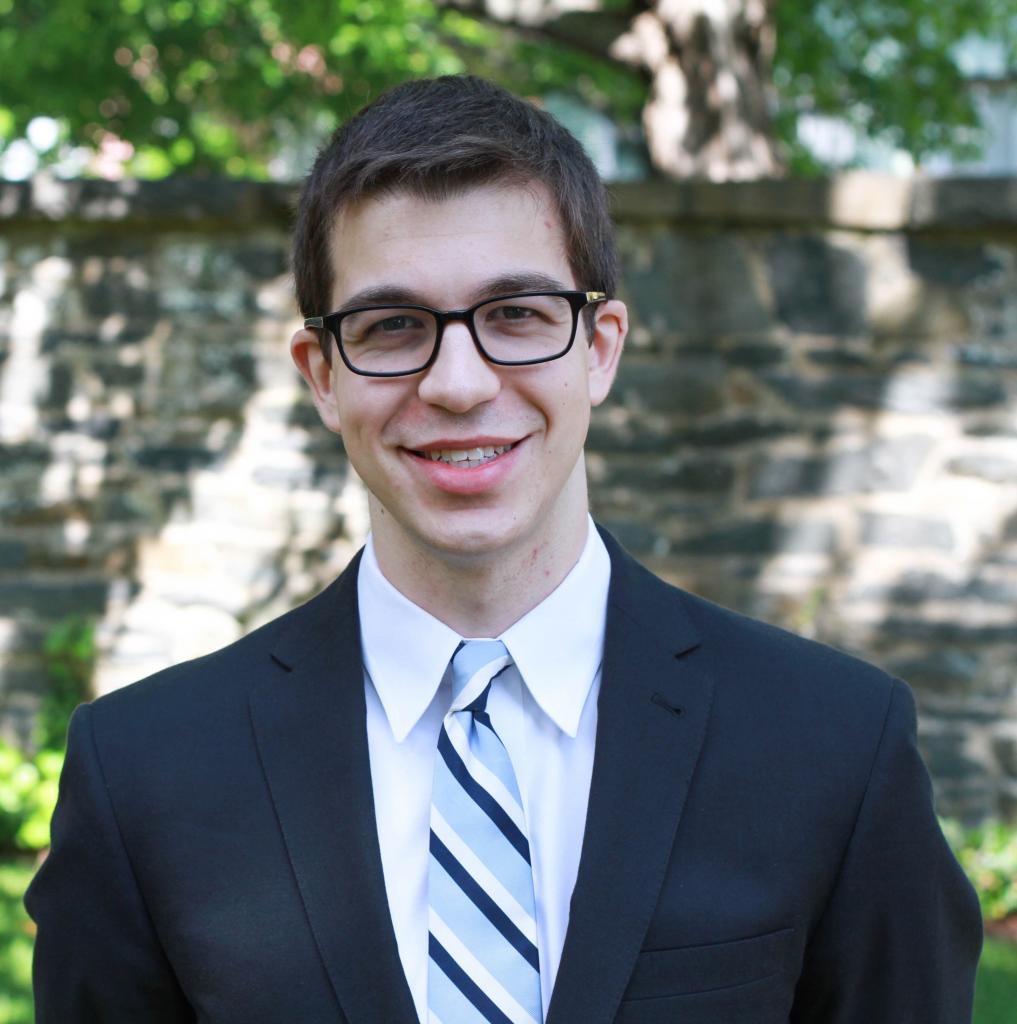Today's Headlines and Commentary
The father of the man suspected of engineering the bombs found in New York City and New Jersey on Saturday told police in 2014 that his son was a “terrorist,” briefly opening an FBI investigation, the New York Times reports. Ahmed Khan Rahami’s father made the statement to police after Rahami was arrested and accused of stabbing his brother, and later recanted when questioned by the FBI.
Published by The Lawfare Institute
in Cooperation With

The father of the man suspected of engineering the bombs found in New York City and New Jersey on Saturday told police in 2014 that his son was a “terrorist,” briefly opening an FBI investigation, the New York Times reports. Ahmed Khan Rahami’s father made the statement to police after Rahami was arrested and accused of stabbing his brother, and later recanted when questioned by the FBI. A law enforcement official also indicated that Rahami was carrying a notebook containing references to the Boston Marathon bombers and Anwar al-Awlaki, the Yemeni-American al-Qaeda affiliated cleric killed in a U.S. drone strike in 2013, when he was arrested yesterday.
The Daily Beast notes that Rahami, a U.S. citizen born in Afghanistan, made “at least three and possibly four” trips to Pakistan over the last decade, marrying a Pakistani woman for whom he attempted to obtain a U.S. visa. Rahami was not included on any government terrorist watch lists that might have flagged his travel. Notably, the Afghan Taliban has disavowed any connection with Rahami, who has now been charged with five counts of attempted murder of police officers following his shootout with authorities on Monday. The Washington Post indicates that further charges may follow.
The Times examines the use of cellphone alerts to notify those in the New York City area of the manhunt for Rahami. The paper also takes a look at the disparate responses to the bombings by the presidential candidates, noting Hillary Clinton’s description of Donald Trump as a “recruiting sergeant for the terrorists” due to his trenchant campaign rhetoric about Muslims and citizens of other countries. She went on to say that, “We know that Donald Trump’s comments has been used online for the recruitment of terrorists.”
Minnesota police have not yet found evidence of a connection between ISIS and the suspect in Saturday’s stabbing attack at a St. Cloud mall, despite a statement by the Islamic State’s news agency on Sunday claiming responsibility for the attack. The Times has more on the suspect, Dahir Adan, and his possible motivations.
Meanwhile in Syria, the U.S.-Russia brokered ceasefire is in serious trouble following an attack on a humanitarian convoy into Aleppo yesterday afternoon. The convoy, which was carrying supplies to a village near Aleppo, was bombed yesterday in an attack that killed over 20 people. The United Nations has suspended all aid convoys in response, with Secretary General Ban Ki-Moon declaring that “those who bombed [the convoy] were cowards.” The International Committee of the Red Cross stated that the attack was a “flagrant violation of international law,” and the U.N. has indicated that the attack may have been a war crime if humanitarian workers were deliberately targeted. The Post has the story.
But who is responsible for the convoy’s bombing? Not us, say Russia and the Syrian government. The Kremlin suggested that the convoy was not hit by an airstrike but was instead destroyed by a fire that “strangely began” during a “massive rebel offensive.” Despite widespread misgivings about Russia’s good faith at the U.N., Secretary of State John Kerry declared that, “The ceasefire is not dead.” U.N. envoy to Syria Staffan de Mistura clarified that the ceasefire can only be ended by mutual agreement between Washington and Moscow.
The Daily Beast takes another look at the mistaken U.S. coalition airstrike on Syrian troops this weekend and tells us that coalition forces may have killed regime prisoners forced into conscription rather than Syrian soldiers. The Department of Defense is still trying to figure out what went wrong in Saturday’s airstrike, but Reuters flags comments by Chairman of the Joint Chiefs of Staff General Joseph Dunford indicating that the military may believe the error was not entirely its own.
Confused yet? Over at the Times, Max Fisher has some answers to basic yet surprisingly complicated questions about the Syrian civil war.
The Iraqi military and allied forces have launched an attack on the ISIS-held town of Shirqat in an offensive that may open the gates to retake Mosul from the Islamic State, the Wall Street Journal tells us. Shirqat is located 60 miles from the ISIS stronghold. According to the AP, President Obama and Iraqi Prime Minister Haider al-Abadi announced their intentions to recapture Mosul within months after meeting on the sidelines of the U.N. General Assembly meeting this week.
The Financial Times reports that the Iraqi military’s reliance on local informants to identify ISIS sympathizers has led to incarceration of innocent civilians as bitter Iraqis make use of the anti-ISIS campaign to turn those they don’t like over to authorities. Critics warn that the jailing of supposed ISIS supporters on thin evidence may cause problems for Iraq down the line, as prisoners may actually become increasingly sympathetic to extremism when under lock and key.
Saudi police forces arrested 17 alleged Islamic State members on Monday, the Wall Street Journal notes. The suspects were in the “advanced stages of planning four attacks across the kingdom” against both civilian and government targets. Saudi police seized caches of weapons, ammunition, explosives, and currency along with the arrests.
Iran has arrested and charged a Lebanese citizen who resides in the United States with espionage, sentencing him to 10 years in prison and a $4 million fine. This is the latest in a pattern of Iranian arrests of people with foreign connections to the West. The Journal has more.
“U.S. airstrikes killed eight Afghan policemen in the southern province of Uruzgan,” the Journal reports. The United States was providing close air support to Afghan government forces fending off Taliban attacks on the province’s capital, Tarin Kot. The friendly fire follows closely behind the recent U.S. targeting error in striking Syrian government forces as well as the inadvertent targeting of a hospital in Kunduz last fall.
Senator Rand Paul (R-KY) and Senator Chris Murphy (D-CT) are spearheading a Congressional effort to block a new arms sale to Saudi Arabia, citing concerns over American support for the Saudi intervention in Yemen. While the arms deal will likely still pass, the opposition reflects concerns over both the lack of public debate in the United States over supporting Saudi Arabia’s campaign in Yemen and the reports of high levels of civilian casualties from Saudi airstrikes. The Hill has more.
Tensions between India and Pakistan continue to worsen following a terrorist attack against an Indian military base in Kashmir, notes the Washington Post. The death toll has risen to 18. It remains to be seen how Indian Prime Minister Modi will respond, given accusations by Indian officials that Pakistan was directly involved in the attack. The Guardian highlights the constraints India faces in its options to retaliate.
The United States and China announced plans on Monday to increase their cooperation in countering North Korean nuclear proliferation, Reuters reports. The announcement follows North Korea’s fifth nuclear test as well as the regime’s recent testing of a rocket engine that could be used to launch satellites or long-range missiles. American officials have been pressuring their Chinese counterparts to take more vigorous action in restraining North Korea. One potential outcome under discussion is the implementation of a tougher U.N. sanctions regime. In the interim, Chinese authorities appear to be cooperating with American efforts to crack down on Chinese firms aiding North Korean military activities.
Political instability has worsened in the Democratic Republic of Congo following concerns that President Joseph Kabila will refuse to abide by constitutional term limitations and remain in power. Protests have turned violent, and the headquarters of political opposition parties have been burned down. The Financial Times has more.
Boko Haram conducted a string of attacks on Sunday in northeast Nigeria, according to the Washington Post. Insurgent forces targeted a local village chief, a military convoy, and a group of Christian civilians.
Russian police reforms will establish a “State Security Ministry” with power and status equivalent to the KGB, the Moscow Times reports. The ministry will integrate intelligence, security, and investigative functions. Observers of the Russian government have voiced concerns over President Vladimir Putin’s recent crackdown on dissent within the country and the Kremlin’s move toward illiberalism.
The European Union announced a new mechanism to initiate bloc-wide sanctions and travel bans on people linked to Islamist militant groups. After a series of recent terror attacks, this change will reduce the procedural requirements for the collective bloc to sanction potential threats. The measure is the newest of several counterterrorism initiatives across EU member states including data sharing, firearm regulation, and foreign fighter monitoring. The Wall Street Journal has more.
The French justice minister defended his country’s use of special prison units grouping together Islamist extremists, saying that the units are overall less violent than other sections of the French prison system despite recent publicity surrounding the attack on two guards by extremist prisoners in northern France. The New York Times has more.
Uruguay refused to accede to the demands of Abu Wa’el Dhiab, a former Guantanamo Bay prisoner who has been on hunger strike for more than a month in an attempt to emphasize his desire to leave the country and join his family in Turkey, the Washington Post reports. Uruguayan government officials cited difficulties in finding countries willing to repatriate the former detainee.
ICYMI: Yesterday, on Lawfare
Itamar Mann reviewed Theoretical Boundaries of Armed Conflict and Human Rights, edited by Jens David Ohlin.
Dan Byman examined governments around the world that both fight and exploit the presence of terrorist groups on their soil.
Marcel Bucsescu and Matthew Waxman took a look at New York’s proposed set of cybersecurity regulations for financial services companies.
Bobby Chesney provided some preliminary thoughts on the interrogation of Ahmed Khan Rahami.
Susan Hennessey and Benjamin Wittes argued that while Edward Snowden should not be granted a presidential pardon, President Obama should consider a commutation of Chelsea Manning’s sentence.
Email the Roundup Team noteworthy law and security-related articles to include, and follow us on Twitter and Facebook for additional commentary on these issues. Sign up to receive Lawfare in your inbox. Visit our Events Calendar to learn about upcoming national security events, and check out relevant job openings on our Job Board.




.jpg?sfvrsn=6b10cf8f_5)

